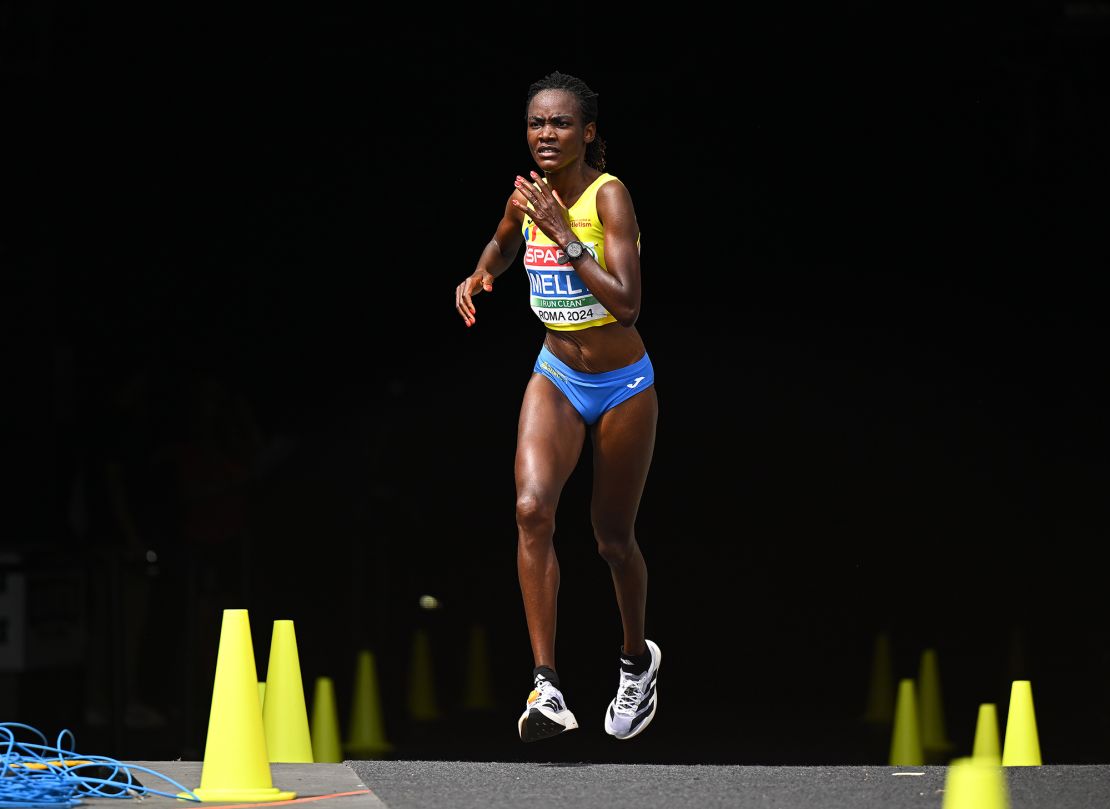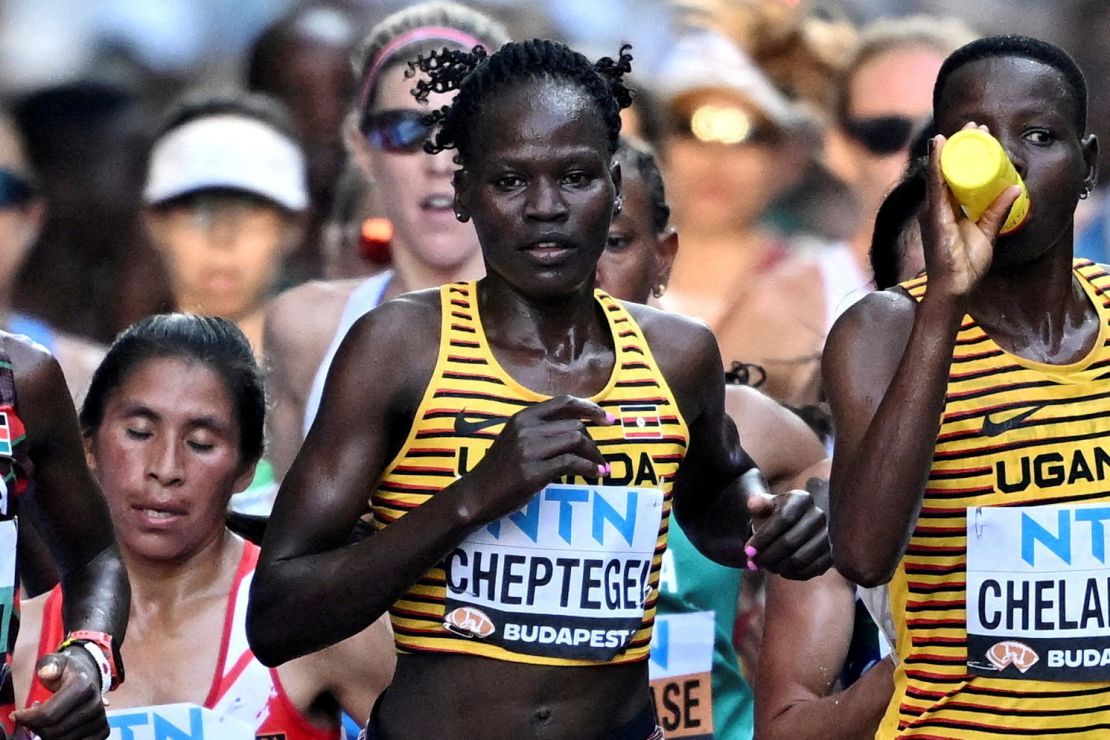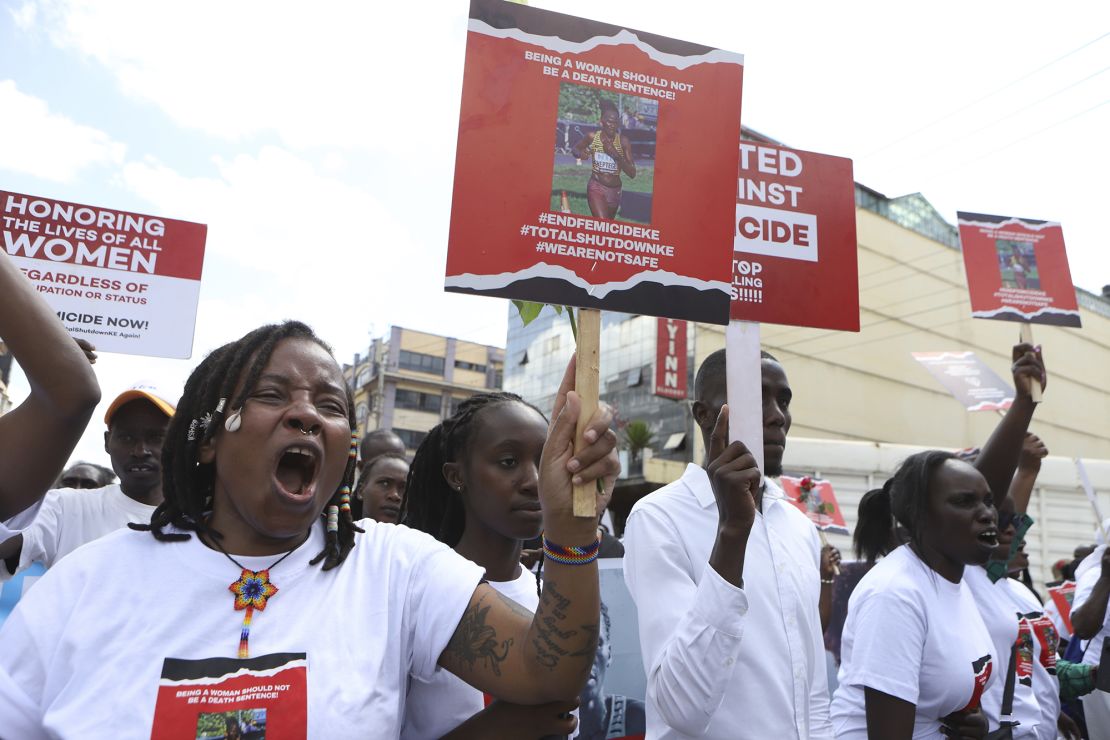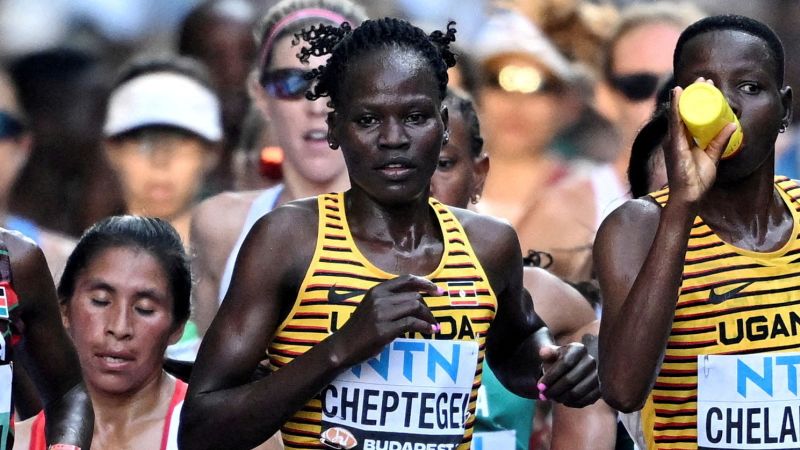CNN
—
When Joan Chelimo first met Rebecca Cheptegei, she remembers her fellow distance runner simply as a “normal, happy girl,” delighted to be competing at the Olympics.
The pair had started talking after competing in the women’s marathon in Paris last month, Chelimo representing Romania and Cheptegei running for Uganda.
“We had these chats after the race, and she was just so kind,” Chelimo tells CNN Sport. “You could see she’s hardworking.
“And to be honest, I could not see any sign – you couldn’t tell from how she was speaking – that she was going through something. And that makes me so sad.”
Weeks after the Olympic marathon, Cheptegei died aged 33, succumbing to burns caused by her boyfriend, Dickson Ndiema, during an attack at her home in Kenya.
Trans Nzoia County police said that Cheptegei had been doused in petrol by Ndiema, who stormed her house with a jerry can of gasoline and set her on fire after a disagreement over land. Ndiema has also died having sustained burns during the attack.
“I don’t know where the humanity is,” says Chelimo. “I feel like something more has to be done. We need to come together as one voice, not only women but also men. Everybody in society and the community just needs to come together and see how we can end this.
“I’ve been very sad. I could not sleep some of the nights. It’s been just terrible.”

In the aftermath of the tragedy, Chelimo says that she visited Cheptegei’s home to see the site of the attack and learn from the late athlete’s children, who are aged 11 and nine, the horrific details surrounding their mother’s death.
Chelimo was told about how Cheptegei tried to extinguish the flames engulfing her body by rubbing against a tree and rolling on the grass, desperate to try anything to stop the burning.
“You could see from the green grass that there were some patches that had been really burnt, there was no grass,” she says.
“That is the moment that I said to myself, ‘I’m going to work for justice. I don’t want this to happen again.’”
Chelimo is a board member for Tirop’s Angels, an organization formed by athletes following the 2021 killing of Kenyan distance runner Agnes Tirop, whose husband, Ibrahim Rotich, has been charged with her murder. Rotich has pleaded not guilty, according to Reuters, and the case is ongoing.
Tirop’s Angels aims to combat gender-based violence in Africa and around the world. Among its objectives are empowering women and girls at risk of violence, expanding services available to survivors, intensifying efforts to turn policy pledges into reality, and engaging men and boys in prevention efforts.

The organization also holds fundraising events – including marathons and half marathons – to promote awareness of gender-based violence and celebrate the lives of victims. On Friday, a day before Cheptegei’s funeral in eastern Uganda, Tirop’s Angels hosted a femicide walk in the Kenyan city of Eldoret.
There have been plenty of challenges along the way for those involved in Tirop’s Angels, particularly in the early days.
“The first time we started Tirop’s Angels, we had a lot of rejection,” says Chelimo. “We were not accepted from the community because people viewed us as, ‘Those are just girls who are against marriages, they want to separate people.’ That was the reception. But when we started incorporating men in our activities was when we were accepted.”
In Kenya, according to government data from 2022, more than a quarter of men, and a third of women aged 15 to 49 have experienced physical violence, “committed by a husband/wife, intimate partner or anyone else.”
The survey also shows that “marital status is linked to experiences of violence among women … women who have ever been married are much more likely to have experienced violence since age 15 than those who have never been married (41% versus 20%).”
According to Chelimo, the issue of violence towards women in the region is born out of archaic ideas surrounding gender roles, and female international athletes are often targeted due to their financial success.
“(These women) are going against traditional norms where the woman was just in the kitchen and taking care of the kids,” she says, adding:
“Women athletes nowadays have traveled, and they know their rights and they want to come out and speak up.
“They are becoming more independent, financially independent, and when they want to divorce, they can.”

Months after Tirop’s death aged 25, another Kenyan athlete, 28-year-old Damaris Mutua, was found strangled in a home with a pillow over her face. Mutua had placed third at a half marathon in Angola earlier that month.
Having represented Uganda at international races for several years, Cheptegei was competing at the Olympics for the first time in Paris, finishing 44th in the marathon.
Her mother, Agnes, remembered her as “a good child,” while her father, Joseph, blamed the Kenyan government and police for failing to prevent their daughter’s death, saying that the family had previously reported Ndiema for domestic violence offenses.
Neither the Kenyan police nor Kenya’s Directorate of Criminal Investigations have responded to CNN’s request for comment.
“She spoke up,” says Chelimo, “she told people around her, she reported it to the police. Nothing was done. So, the cry from the family was: ‘We just want justice; we just want more enforcement from the government.’”
When she speaks, Chelimo does so with a heavy heart. She laments the pain caused to Cheptegei’s children – “the scars that they are left with” – and wants better protection systems in place to protect future generations of women.
“I’m not running just to make money,” she says. “I’m running for all the girls out there who are looking to me, who are going through whatever they’re going through.
“That’s what I said to myself: ‘I am my sister’s keeper.’”
CNN’s Nimi Princewill and Faith Karimi contributed to reporting.






